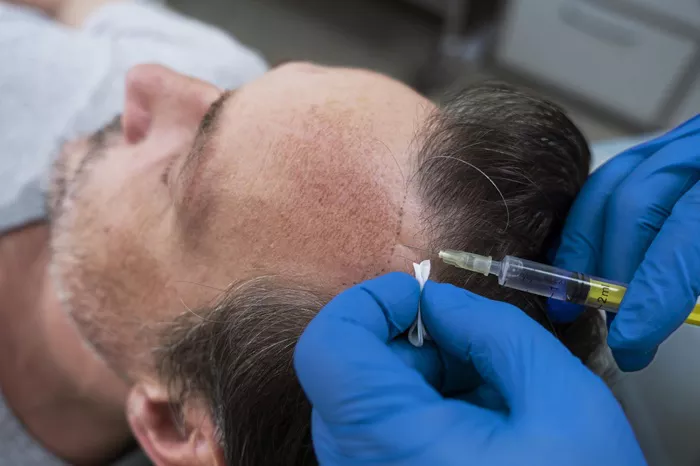After a hair transplant, proper care of the scalp is essential to ensure the best results. Using the right oils can help in healing, nourishing the scalp, and supporting the growth of transplanted hair. This article provides a comprehensive guide to selecting the best oils for your scalp after a hair transplant.
Understanding the Post-Transplant Scalp
After a hair transplant, the scalp undergoes several changes. It may be sensitive, dry, or prone to itching. The skin’s healing process involves reducing inflammation and supporting the regeneration of healthy hair follicles. Choosing the right oil can significantly impact these processes.
Key Factors to Consider
Hydration: The scalp may be dry post-transplant. Oils with moisturizing properties can help keep the scalp hydrated.
Healing: Oils that have anti-inflammatory and soothing effects can aid in healing.
Nutrient Supply: Essential fatty acids and vitamins in oils can support overall scalp health and hair growth.
Non-Comedogenic Properties: Oils should not clog the pores, as this can interfere with the healing process.
SEE ALSO: How to Wash Your Head After a Hair Transplant?
Best Oils for Scalp Care After a Hair Transplant
Coconut Oil
Benefits:
Hydration: Coconut oil is an excellent moisturizer that helps combat dryness.
Anti-Inflammatory: It has anti-inflammatory properties that can reduce irritation.
Nutrient-Rich: Contains fatty acids and vitamins that nourish the scalp and hair follicles.
Usage:
Apply a small amount to the scalp and gently massage.
Leave it on for 30 minutes to an hour before rinsing.
Use 2-3 times a week.
Jojoba Oil
Benefits:
Balancing Sebum Production: Jojoba oil mimics the natural oils of the scalp, helping to balance sebum production.
Non-Comedogenic: It does not clog pores, making it ideal for sensitive scalps.
Hydrating: It provides hydration without feeling greasy.
Usage:
Apply a few drops to the scalp and massage gently.
Leave it overnight and rinse the following morning.
Use 2-3 times a week.
Argan Oil
Benefits:
Nourishing: Rich in vitamin E and essential fatty acids that nourish the scalp and strengthen hair.
Anti-Inflammatory: Helps reduce inflammation and soothe irritation.
Moisturizing: Provides hydration to the scalp.
Usage:
Apply a few drops directly to the scalp.
Massage gently and leave it on for a few hours or overnight.
Rinse out with a mild shampoo.
Tea Tree Oil
Benefits:
Antiseptic: Has antiseptic properties that can help prevent infections.
Anti-Inflammatory: Reduces inflammation and soothes the scalp.
Dandruff Control: Helps in controlling dandruff and flakiness.
Usage:
Dilute a few drops of tea tree oil with a carrier oil (like coconut or jojoba oil).
Apply to the scalp and massage gently.
Leave it on for 30 minutes before rinsing.
Use once a week.
Rosemary Oil
Benefits:
Stimulates Hair Growth: Known for its potential to promote hair growth.
Improves Circulation: Enhances blood circulation to the scalp.
Reduces DHT: Helps in reducing dihydrotestosterone (DHT) levels, which can contribute to hair loss.
Usage:
Mix a few drops with a carrier oil (such as coconut or jojoba oil).
Massage into the scalp and leave it for at least 30 minutes before washing.
Use 2-3 times a week.
Lavender Oil
Benefits:
Relaxing: Known for its calming effects which can reduce stress.
Antimicrobial: Has antimicrobial properties that help maintain a healthy scalp.
Promotes Hair Growth: Can support hair growth and reduce hair loss.
Usage:
Dilute with a carrier oil and apply to the scalp.
Massage gently and leave it on for 30 minutes to an hour.
Rinse with a mild shampoo.
How to Choose the Right Oil
Selecting the right oil depends on several factors:
Scalp Sensitivity: Choose oils that are gentle and non-irritating if your scalp is sensitive.
Hydration Needs: Opt for hydrating oils if you experience dryness.
Healing Support: Use oils with anti-inflammatory and healing properties if you have irritation or redness.
Personal Preference: Consider any allergies or sensitivities you may have to specific oils.
Precautions and Tips
Patch Test: Always perform a patch test before applying any oil to the entire scalp. This helps to check for any allergic reactions.
Avoid Overuse: Using too much oil can lead to buildup and potential clogging of pores. Stick to recommended amounts.
Consult with Your Surgeon: Before starting any new oil treatment, consult with your hair transplant surgeon to ensure it aligns with your post-operative care plan.
Use Mild Shampoos: When rinsing oils, use mild shampoos to avoid stripping the scalp of its natural oils or causing irritation.
Conclusion
Proper care of your scalp after a hair transplant is crucial for optimal results. The right oils can aid in hydration, healing, and overall scalp health. Coconut oil, jojoba oil, argan oil, tea tree oil, rosemary oil, and lavender oil are all excellent choices, each with unique benefits. Tailor your choice of oil to your specific needs and consult with your healthcare provider for personalized recommendations. By following these guidelines and incorporating the right oils into your post-transplant care routine, you can support the healing process and promote healthy hair growth.

